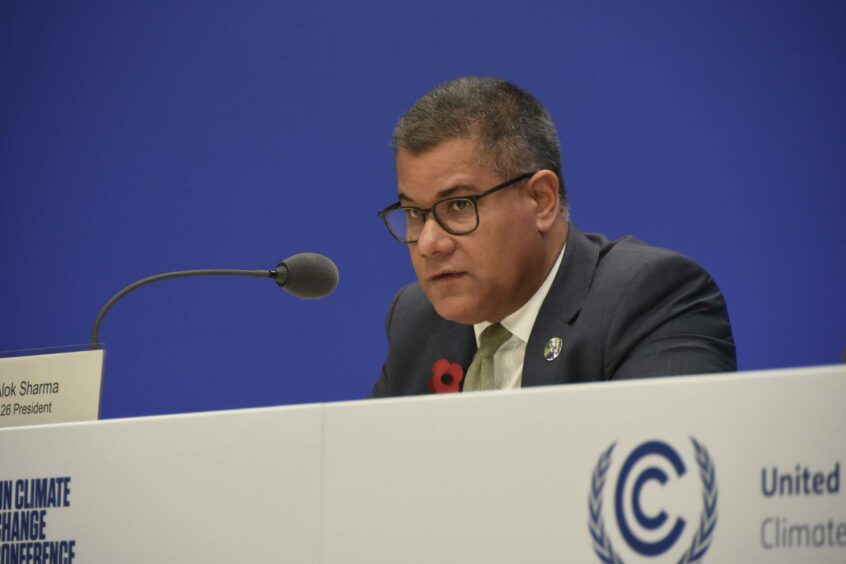
Russia’s invasion of Ukraine means climate security and energy security are “now synonymous”, according to the UK’s COP26 President.
During his keynote speech at Global Offshore Wind 2022, Alok Sharma said in the face of “multiple global crises”, the value of “home-grown renewables” has come to the fore.
And he believes offshore wind in particular is “integral” to reducing imports, lowering bills, and easing inflation.
Reducing the UK’s exposure to Russian oil and gas has been a key focus for Westminster following Putin’s attack on Ukraine.
While that has served to boost the oil and gas industry, which had become something of a pariah after COP26, there are also calls for it to spark a rapid expansion of renewables.
Mr Sharma said: “Much has changed since then (COP26). We meet today against the backdrop of multiple global crises. War has returned to Europe, inflation is spiking, debt is mounting, energy prices are rising and globally, people are struggling to feed their families. All, as we continue to deal with the ongoing effects of the pandemic.
“But these crises should increase, not diminish out determination to deliver on the pledges that we made in Glasgow. In particular, Putin’s brutal and illegal invasion has demonstrated to countries the dangers or relying on fossil fuels controlled by a hostile actor.
“And countries now understand the benefits of low cost, home-grown renewables, the price of which cannot be manipulated from afar. In short, climate and environmental security are now synonymous with energy and national security.
“Our long term energy futures do not lie in fossil fuels, and offshore wind is integral to this transition.”
Government upping the ante
In its recent energy security strategy, the UK Government set an ambition for 95% of electricity to come from low carbon sources, including onshore wind and nuclear, by 2030.
And by 2035, it hopes that full decarbonisation of power can be achieved.
Mr Sharma told conference attendees that there is also an “economic case” to be made, with green energy now cheaper than coal and gas following major price rises.
In an effort to accelerate the rollout, ministers recently upped their expectations for offshore wind, from 40 gigawatts (GW) to 50 GW by 2030, on top of a rise in the floating wind goal.
Mr Sharma said: “This ambition will boost the number of direct and indirect jobs supported by the sector, already expected to exceed 60,000 by 2030, whilst delivering vital investment in coastal communities and bolstering self-sufficiency.”
He added: “The transition will not happen overnight, but the potential of wind is extraordinary, and the urgent need to harness this potential could not be clearer.”
Recommended for you


 © Supplied by RenewableUK
© Supplied by RenewableUK